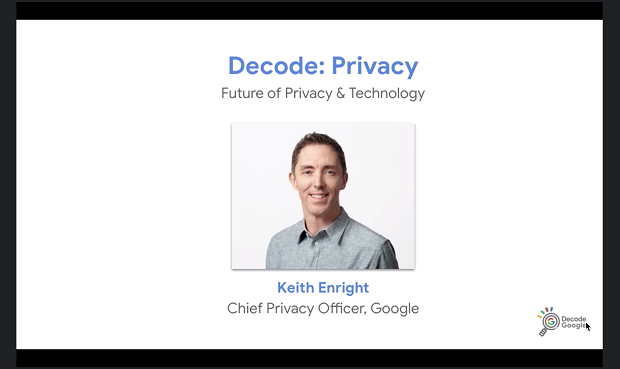As digitalization accelerates, people are realizing the importance of data privacy. A Cisco study released in March 2022 showed that 46% of global consumers felt unable to protect their data sufficiently, mainly because they are unsure about how organizations collect and what they do with their data.

“It is very clear that expectations of companies like Google are changing around the world. People want the best possible product experience, strong security, and privacy protections that keep them in control,” said Keith Enright, Google’s chief privacy officer during company’s second Decode briefings held on Thursday, July 21.
Google intends to be part of the solution rather than the cause of users’ privacy worries. Throughout the briefing, the tech giant spotlighted their innovations and commitments geared towards giving users’ more control of their data and ensuring their anonymity.
The company first covered changes that give users more choice how long their data is stored. One of which is the update made to Google Account activity controls. Where before users had to manually enable deletion of their activity records, the current default is that records are automatically deleted.
Additionally, Enright stressed Google’s actions towards data portability or the ability to back up or remove data. Years before regulators began asking for it, Google had made available Google Takeout, a free tool that allows a user to export data collected by Google, including photos, drive content, and YouTube activity.
“What [this] signals is our commitment to do more with less. We want to reduce the amount of information we are collecting and retaining, without compromising on the functionality and the usability of services the users have come to expect when they are working with Google,” Enright affirmed.
The company also reassured users that privacy-preserving technology is working behind the scenes. For instance, Federated Learning was implemented to retain personal training data on-device. Any training data outputted are aggregated to create improved models without Google seeing any private user data.
Enright emphasized: “Some of the things we have been doing to drive this work forward in terms of privacy enhancing technologies is allowing ourselves and others to use large, aggregated data sets guaranteeing that that individual level data remains protected and remains private.”
Another initiative is Differential Privacy. This mathematically provable method of anonymizing individual data maintains a user’s privacy while preserving the maximum value of the data set as a whole.
Finally, Google’s Protected Computing encompasses a range of technologies and processes that ultimately minimizes the amount of personally identifiable data, strips a person’s identity, and prevents anyone — even Google — from accessing a user’s sensitive information.
Google also touched on its privacy sandbox APIs, which aims to provide an alternate option for advertisers and publishers to gather data as compared to third-party cookies which track individual user behavior across websites.
Lastly, Google reasserted its recent commitment to the new Global Cross Privacy Rules (CBPR). The diverse and growing number of data privacy regulations that have arisen as nations attempt to protect user’s privacy are professedly hampering technology companies capability to provide satisfying goods and services. The CBPR proposes a framework that allows data to move across jurisdictions while setting the highest standards for user protection.
“Working together within the framework of the global CBPR system, we can create interoperability so that in spite of the distinctions between those systems, we can have a high level of confidence as to what the legal requirements are. We can improve accountability through third-party accountability agent and we can continue innovating and providing these incredible services that users have come to expect when they engage with the Internet,” Enright explained.
“The global Internet and the digital economy rely on the free flow of information. They rely upon a confidence that we are meeting reasonable levels of privacy and security and the provision of our products everywhere in the world, irrespective of where a user sits. Most importantly, we need to be taking the steps necessary to promote and reinforce user trust in Google and user trust in technology,” Enright concluded.




